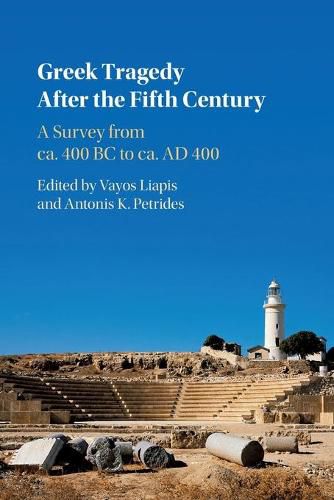Readings Newsletter
Become a Readings Member to make your shopping experience even easier.
Sign in or sign up for free!
You’re not far away from qualifying for FREE standard shipping within Australia
You’ve qualified for FREE standard shipping within Australia
The cart is loading…






Did Greek tragedy die along with Euripides? This accessible survey demonstrates that this is far from being the case. In it, thirteen eminent specialists offer, for the first time in English, broad coverage of a little-studied but essential part of the history of Greek tragedy. The book contains in-depth discussions of all available textual evidence (including inscriptions and papyri), but also provides historical perspectives on every aspect of the post-fifth-century history of tragedy. Oft-neglected plays, such as Rhesus, Alexandra, and Exagoge (the only surviving Biblical tragedy), are studied alongside such topics as the expansion of Greek tragedy beyond Athens, theatre performance, music and dance, society and politics, as well as the reception of Greek tragedy in the Second Sophistic and in Late Antiquity, and the importance of ancient scholarship in the transmission of Greek tragic texts.
$9.00 standard shipping within Australia
FREE standard shipping within Australia for orders over $100.00
Express & International shipping calculated at checkout
Did Greek tragedy die along with Euripides? This accessible survey demonstrates that this is far from being the case. In it, thirteen eminent specialists offer, for the first time in English, broad coverage of a little-studied but essential part of the history of Greek tragedy. The book contains in-depth discussions of all available textual evidence (including inscriptions and papyri), but also provides historical perspectives on every aspect of the post-fifth-century history of tragedy. Oft-neglected plays, such as Rhesus, Alexandra, and Exagoge (the only surviving Biblical tragedy), are studied alongside such topics as the expansion of Greek tragedy beyond Athens, theatre performance, music and dance, society and politics, as well as the reception of Greek tragedy in the Second Sophistic and in Late Antiquity, and the importance of ancient scholarship in the transmission of Greek tragic texts.